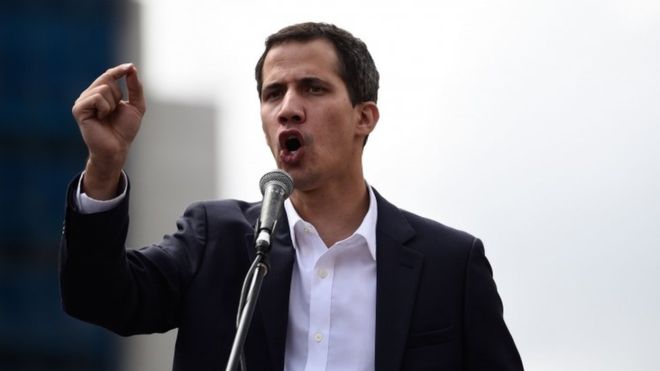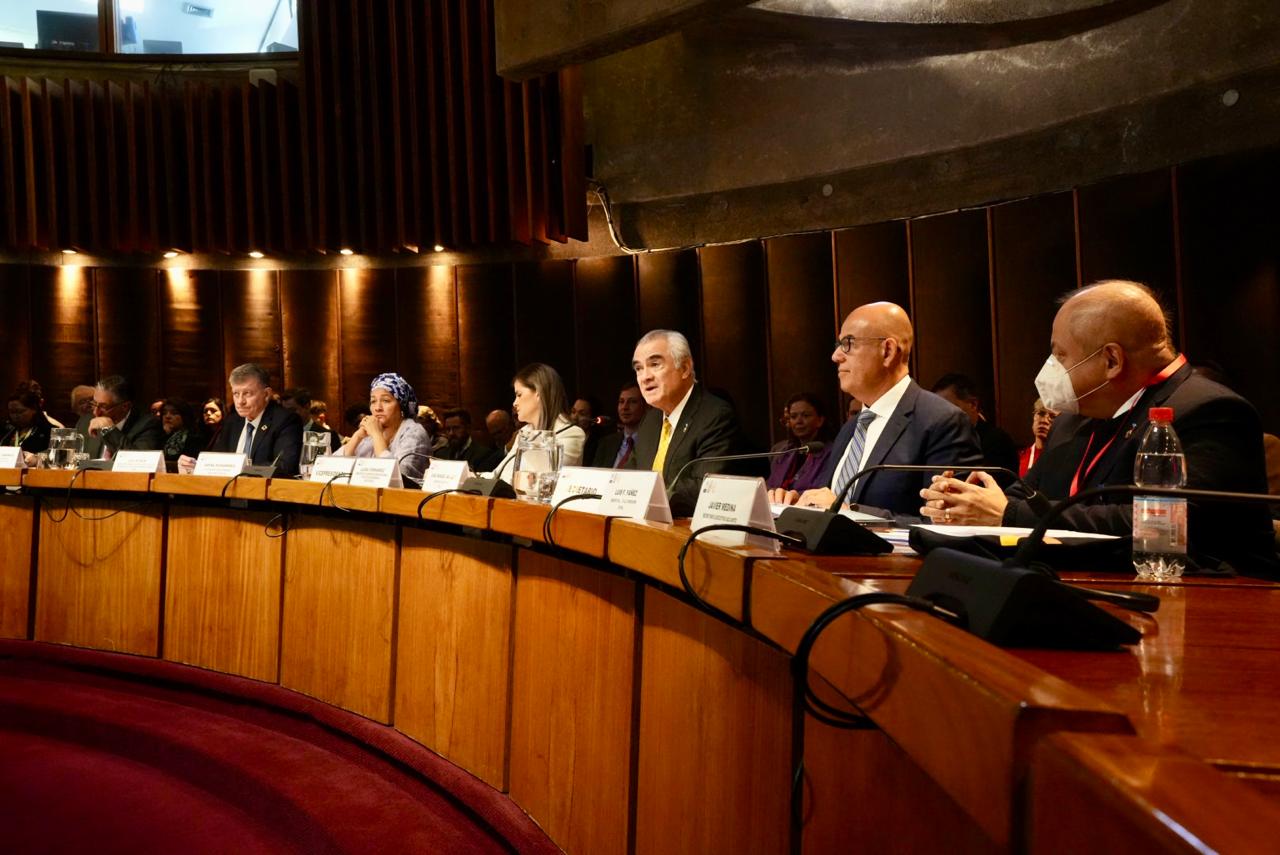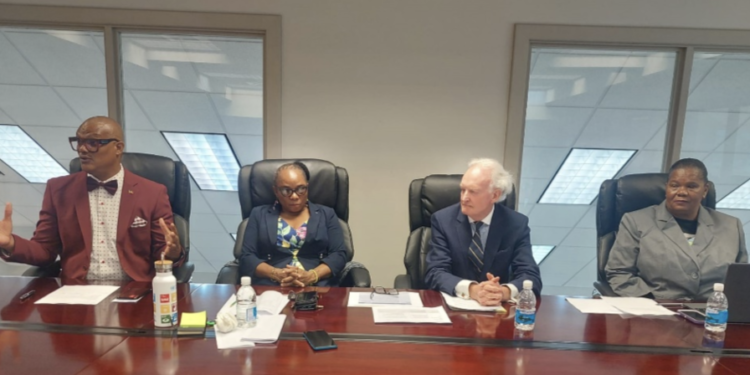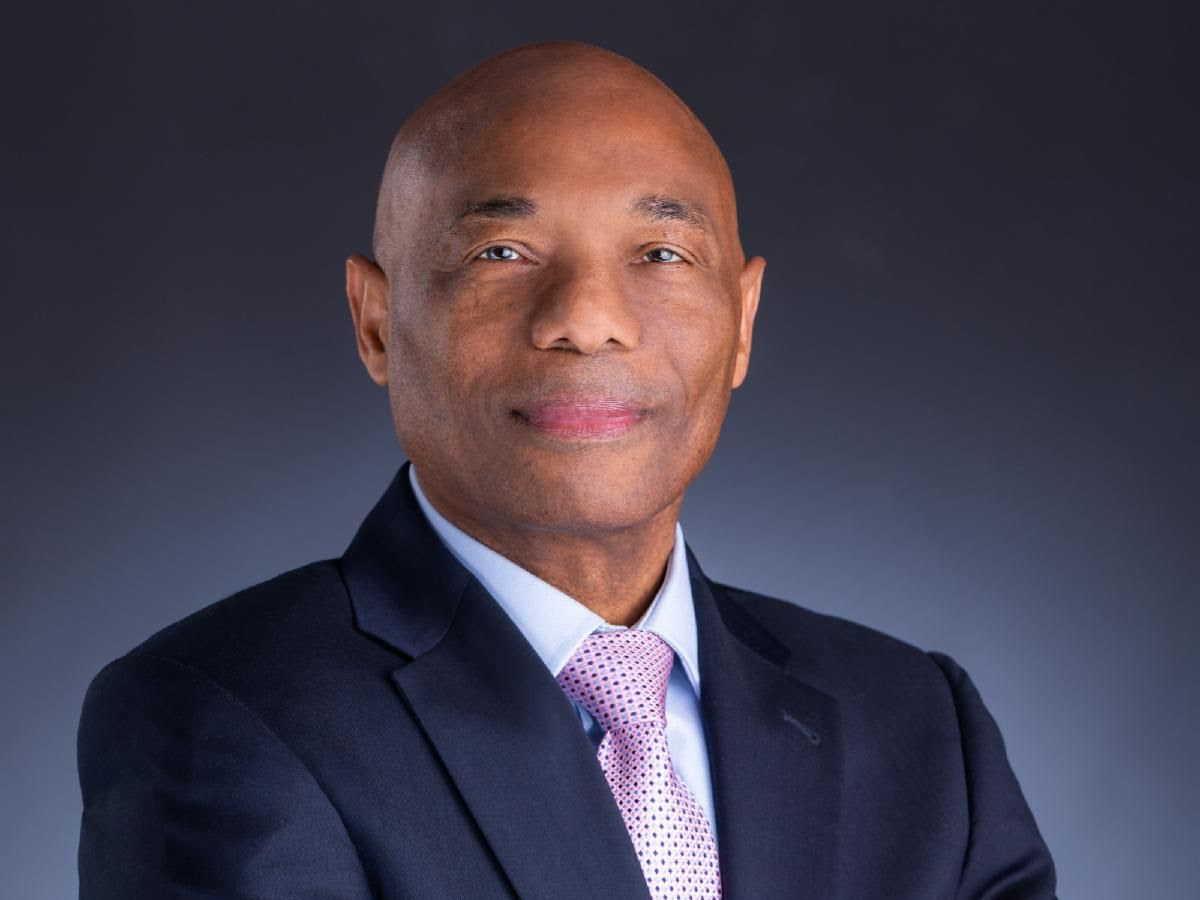US President Donald Trump has said he recognises Venezuelan opposition leader Juan Guaidó as interim president.
It came minutes after the 35-year-old declared himself as acting leader in Caracas on Wednesday.
Tens of thousands of Venezuelans are taking to the streets in protest against President Nicolás Maduro.
Mr Maduro was sworn in for a second term earlier this month, after a poll considered a sham by much of the international community.
Venezuela has been in economic freefall for a number of years under his leadership.
Hyperinflation and key shortages, including of food, has forced millions out of the country.
What is the latest with protests?
Speaking in Caracas while declaring himself leader, Mr Guaidó vowed to protesters: “We will stay on the street until Venezuela is liberated!”
Footage from Wednesday’s protests showed some demonstrators facing off against National Guard security forces, tear gas being dispersed and vehicles on fire.
Mr Guaidó, who is head of the country’s National Assembly, has called on armed forces – who have so far backed Mr Maduro – to disobey the government.
He has promised to lead a transition government and hold free elections.
Some counter-demonstrations are also being held in support of Mr Maduro.
What did Mr Trump say?
In a statement on Wednesday, Mr Trump described Mr Maduro’s leadership as “illegitimate” and said the country’s congress, led by Mr Guaidó, was the only “legitimate branch of government” in the country.
“The people of Venezuela have courageously spoken out against Maduro and his regime and demanded freedom and the rule of law,” his statement said.
The statement also said the US would hold Mr Maduro’s regime “directly responsible” for any threats to the safety of the Venezuelan people.
In the announcement, he also urged other nations to follow suit.
So far, five South American countries have done so.
The Organization of American States (OAS), the pan-Americas organisation in which Venezuela does not participate, has also recognised Mr Guaidó as leader.
“Our congratulations to @jguaido as acting President of #Venezuela. You have all our recognition to launch the return of democracy to the country,” Secretary General Luis Almagro said in a tweet.
Venezuela withdrew from the organisation, which aims to aid cooperation across the continent, in 2017 – accusing it of meddling in his country’s internal affairs.
Why are people protesting?
Mr Maduro, who took office in 2013 after the death of Hugo Chavez, has been condemned at home and abroad for alleged human rights abuses and for his handling of the economy.
There have been widespread reports of shortages of items like medicine and food throughout Venezuela and an estimated three million people have fled the country.
Mr Maduro’s re-election in May 2018 was labelled as illegitimate at home and abroad – amid opposition absences from the ballot and reports of vote-rigging in his favour.
Wednesday’s demonstrations come just two days after 27 National Guard soldiers were reported to have revolted against the government at a guard post in the capital, Caracas.




